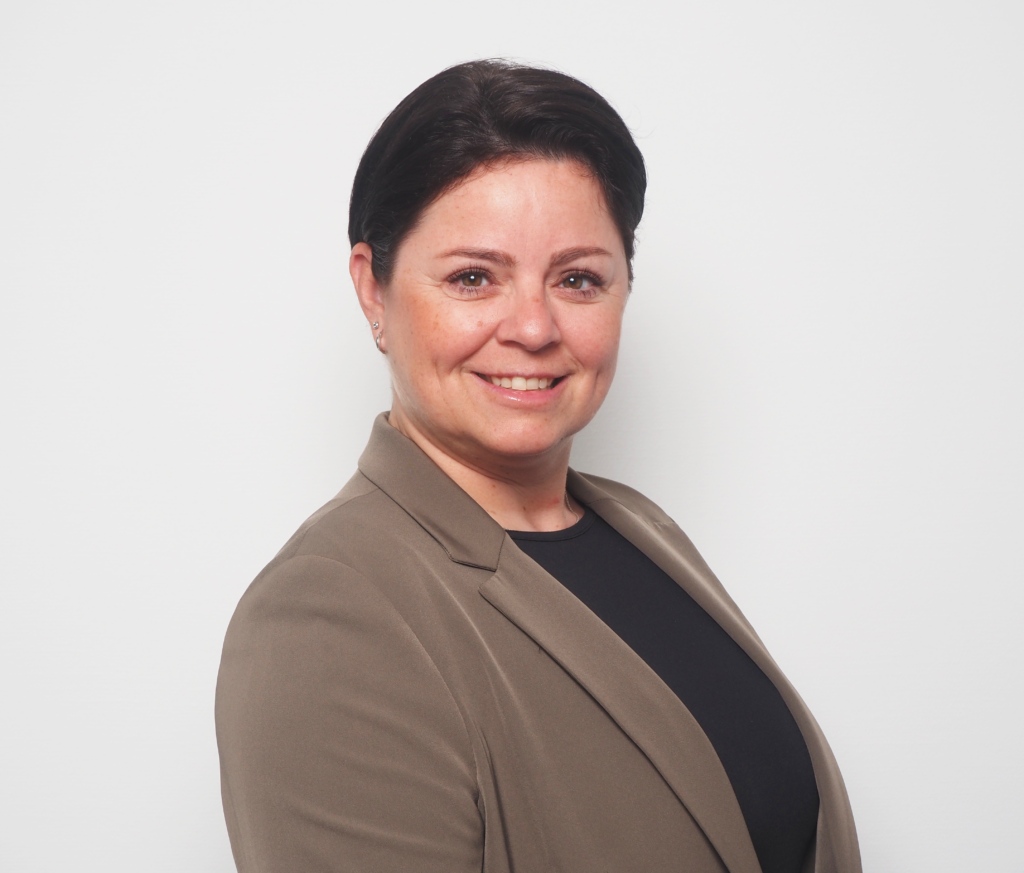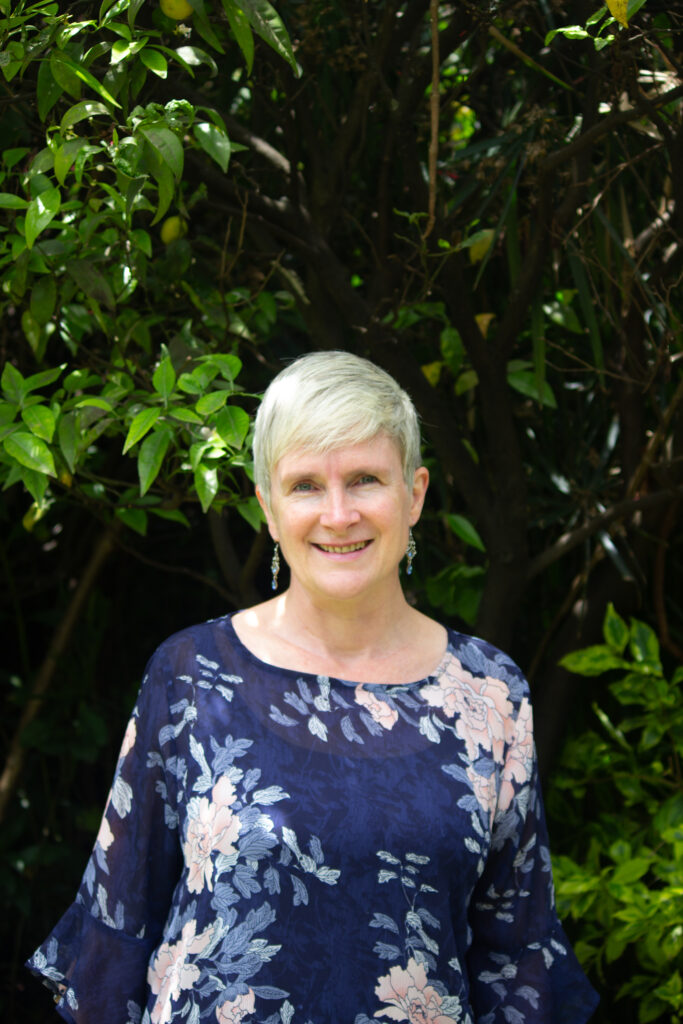Recruiting Fail Could Easily be Avoided
I’m on a MISSION to bring the HUMAN TOUCH back into Global Mobility. One theme that I see more now is that we Global Mobility Professionals are involved in the recruiting of Global Talent. This makes a lot of sense when you consider that we have the knowledge and skills to deal with most of the challenges that hiring people from other countries brings. However, since in most organizations, we are not officially responsible we don’t get the resources we need to deal with recruiting professionally. Hence, we can consult but not support. So, dear recruiters, I hope this is helpful.
The Search for the Right Talent
Lifestyle Expats, or Self-Initiated Expats (SIEs), are an important factor in today’s global force and the actual circumstances suggest the phenomenon is on the rise (Habti & Elo, 2019). Thanks to technological changes, such as online recruiting, the labor market has become more international and more fluid and made the process of filling jobs internationally (internally or externally the organization) much simpler. As a consequence, an increasing number of professionals consider working abroad a realistic career option and there are growing opportunities to identify and eventually find a job abroad. We are in the middle of an unprecedented global crisis, which is bound to create a stronger recession than the 2008 financial crisis, and the war for talent is as heated as ever.
Specialized Subject Matter Experts are increasingly hard to find and when you turn to places rich in talent such as Singapore and certain areas of the US like Boston and Silicon Valley, that’s of course where competition is already extremely high. Moreover, there is no real point in stealing from the competition if you aim at bringing in innovation.
The Need for More Diversity, Equity and Inclusion
Our global workforce is as varied as ever, with five generations working side by side and companies striving to fulfill all their Diversity, Equity, and Inclusion goals (gender/religion/ethnicity/sexual orientation). As cited by Forbes, diversity plays an ever more important role in recruitment and is proving to be directly correlated with increased revenue for the company (Boston Consulting Group, 2018; KPMG, 2018). The newest McKinsey Report comes to the same conclusion.
“Despite a rapidly changing business landscape, the business case for diversity, equity, and inclusion (DEI) not only holds but grows even stronger. In our research, we continue to explore the link between diversity and holistic impact.”
Diversity matters even more: The case for holistic impact | McKinsey
Über Sprache zu mehr Diversität in Firmen
The Development from Global Mobility Policy to individual, Customized Offer Letters
Global Mobility policies have historically been a one-size-fits-all model and are often still struggling to include points such as religion, ethnicity, age, disability status, working mothers, non-traditional family units, etc. Make sure your Global Mobility policies acknowledge and support your employees’ varying needs to make them feel more encouraged to accept International Assignment. The point is to ensure that deserving and promising talent does not experience barriers to success. I would even go as far as ditching your policy and working with individual “Box of Chocolates” models (where you select service from a budgeted bundle).
Demographic changes will require highly skilled migrants to fill positions as the turnout of university graduates declines in developed countries. Also at the EU level and among the Member States there is consensus on the need to address labor market shortages, worsened by the deepening demographic crisis and skill mismatch (Platonova & Urso, 2012).
Even rich countries like Liechtenstein, (Beck et al., 2018; Hauri et al., 2016) may have a hard time attracting talent. Other more traditional expat hubs, like Singapore, London, New York City, the UAE, Hong Kong, and Switzerland, continue leading the ranking despite the high costs of living. What makes the difference are their socio-economic policies in which talent growth and management are central priorities.
https://www.adeccogroup.com/future-of-work/latest-research/global-talent-in-the-age-of-artificial-intelligence/
The Need for Nomadic Flexibility
Perhaps even more important to acknowledge is that the world of work as we know has already changed. With new technology enabling employees to work almost anywhere and anytime, the classic ‘nine to five’ is outdated. In an article published by Sage People even before the pandemic changed companies’ approach, figures speak for themselves: not only do 50% of the US interviewees say they’d like to be more mobile at work, but a good 54% would change jobs if it meant more flexibility.
In Global Mobility, Virtual Assignments are an opportunity to give employees the much-longed-for flexibility they seek. Despite Virtual Assignments having always been on the rise since the widespread implementation of the internet, it’s easier to see how they’re going to be even more numerous in the aftermath of the coronavirus crisis. Never before have so many employees worked remotely to guarantee essential business continuity.
But there is another side of the medal, and this is the portion of talent who seek international experience as part of their decision to join a company. In particular, overseas assignments are becoming more appealing among Millennials, who often see the opportunity to live and work abroad as more rewarding than a pay rise. They are called Digital Nomads or Telecommuters. According to Smart Gear, 90% of digital nomads plan on working remotely for the rest of their careers, while 94% of them encourage others to try Digital Nomadism themselves.
Whether or not you’re having trouble attracting talent, here are six basics to add to your recruiting suite that you should consider during and after the recruiting process.
1 – Make Sure They Have a Realistic Picture
Try to put yourself in the mind of a candidate who is contacted by a company in a foreign location. What’s the first thing that you would like to know? Salary? Job title? The direction of the company? Probably none of these things, but rather: “Why would I want to move there?” Moving continents, or even “just” countries, isn’t a decision that can be taken on the potential of a great office view only. Instead, candidates need to know what the place looks like, what language is spoken, where they (and maybe their families) would live, and whether they would fit in.
It is useful to include this information on your careers page to make it more of a relocation portal and less of a job listing. Workable offers a service to help you in this process. Not only will candidates benefit from this information, but so will your company: showing what candidates want to know during the overseas job hiring process builds your credibility from the beginning.
This type of thinking is beneficial for companies at every level, whether you’re hiring someone 70 or 7,000 miles away.
2 – Help with the Move of Household Goods
Among Expats and Expat Spouses, the phase of moving abroad is often cited as the most stressful one. Moving out doesn’t take one day only: there are farewells, often a party, and especially when small kids are involved, the family needs to stay with friends or in a hotel room. While Expats are still busy handing their work over and finalizing conversations with clients, Expat Spouses are often alone in coordinating all the logistics behind the move. That’s why they must be connected with a moving company. Having someone who takes care of their house goods until they are settled in the new location surely spares the Expat family from a lot of stress. If you are looking for a global relocation company, consider paying a visit to the Keller Swiss Group. They offer relocation services, household removals, business relocation, and household storage services, both in Switzerland and worldwide.
3 – Take the Anxiety out of Immigration by Working with a Pro
Organizing support with immigration is another helpful and efficient way of helping the expat family during the stressful pre-assignment phase. In recent years, the process of obtaining work permits and visas has become more complex. Letting Expats and Expat Spouses navigate this sea of bureaucracy all alone would put them under an incredible and unnecessary amount of stress. When it comes to immigration compliance, each case is different and needs to be examined thoroughly. Some relocation companies, like BecomeLocal in Switzerland, are specialists in this field. They can help you handle the permit process, write applications and submit them to the authorities, and instruct professionals and executives to obtain visas, sparing your organization and the expat family a lot of hustle. If you need immigration support in other countries, please reach out to me as I can refer you to a global network.
4 – Provide Spouse Career Support and A Pre-Hire Assessment for the Spouse
The effects that International Assignments have on the Expat Spouse’s well-being and state of mind are often underestimated. For some Expat Spouses, the sudden change from independent career person to stay-at-home parent has a strong psychological impact, even more so if getting a working visa is not possible. Coaching is a very powerful tool with which companies can support Expat Spouses. With the help of a Career Coach, some Expat Spouses manage to start their businesses while living abroad, thus finding deeper fulfillment in the experience. It is also very fair to the Expat Spouse to have a realistic idea of whether their profile leads to potential employment in the host market or whether their chances of finding work are slim. An Expat Spouse Coach can also help with a pre-hire assessment for the Expat Spouse. Also, clarify and be honest about their entitlement to a work permit to avoid disappointment at arrival.
5 – Consult them on Technical Issues
Once again try to put yourself in the mind of your future employees. They now have a clearer idea of what it means to live in your expat hub and they are positively considering relocating there. Perhaps their spouses and children are coming along. In this preparatory phase, Expats are inevitably very busy with what needs to be handled back at home in their professional and private lives. But they also need to be ready for what’s coming next. Handling both “back home” and “in the host country” can be extremely overwhelming, especially if this means going through important technical issues of a country with a different system and in a language they don’t understand. This is the right time to step in and consult them on important decisions such as which type of health insurance to get and how to do it, but also on how to handle their taxes. If you can’t deliver this in-house we’re happy to help.
6 – Sprinkle Everything with Human Touch
As I said earlier and many times before, HUMAN TOUCH is my MISSION and the key to enhancing the Expat Experience. Deloitte (2019) proved to be on board with that when stating that today’s global workforce is attracted and motivated by a more personalized, agile, and holistic experience than before. This is why you must find your way to unlock the HUMAN TOUCH. For example, you can start by welcoming new team members with a hand-written card. You will make their first day a celebration.
Enhancing the Expat Experience
Work with me
Please contact me for a proposal via angela@globalpeopletransitions.com. We also have a global recruiting license for Switzerland.
Resources
Become Local. Swiss Immigration Adviser. https://www.becomelocal.ch
Harrison, C. (2019, 19 Sep.). „7 Surprising Statistics about Digital Nomads.” Smart Gear Blog. https://smartgear.travel/7-surprising-statistics-about-digital-nomads/
Hayes, A. (2020, 7 Apr.). „What is a Digital Nomad?”Investopedia. https://www.investopedia.com/terms/d/digital-nomad.asp
Keller Swiss Group. Worldwide Moving Relocation. https://www.kellerswissgroup.com/
MBO Partners. (2018). „Rising Nomadism: A Rising Trend.” MBO Partners, Inc. https://s29814.pcdn.co/wp-content/uploads/2019/02/StateofIndependence-ResearchBrief-DigitalNomads.pdf
Montilla, E. (2020, 17 Jan.). „Achieving workplace diversity through recruitment in tech.” Forbes. https://www.forbes.com/sites/forbestechcouncil/2020/01/17/achieving-workplace-diversity-through-recruitment-in-tech/#2214496a1359
References
Beck, P., Eisenhut, P. and Thomas, L. (2018). „Fokus Arbeitsmarkt: Fit für di Zukunft?”. Stiftung Zukunft.li. Retrieved 28 May, 2020, from https://www.stiftungzukunft.li/publikationen/fokus-arbeitsmart-fit-fuer-die-zukunft
Boston Consulting Group. (2018). „How diverse leadership teams boost innovation.”, BCG. Retrieved 28 May, 2020, from https://www.bcg.com/publications/2018/how-diverse-leadership-teams-boost-innovation.aspx
KPMG. (2018). „Inclusion and Diversity: How Global Mobility can help move the Needle”, KPMG. Retrieved May 28, 2020, from https://assets.kpmg//content/dam/kpmg/xx/pdf/2018/06/global-mobility-inclusion-and-diversity-how-gms-can-help-move-the-needle-FINAL.pdf
Habti, D and Elo, M. (2019). Global Mobility of Highly Skilled People. Cham, Switzerland: Springer.
Hauri, D., Eisenhut, P., and Lorenz T. (2016). „Knacknuss Wachstum und Zuwanderung: Hintergründe unde Zusammenhange.”Stiftung Zukunft.li. Retrieved 28 May, 2020, from https://www.stiftungzukunft.li/application/files/3215/1635/3318/Knacknuss_Wachstum_und_Zuwanderung_Endfassung_22_11_2016.pdf
Platonova A. and Urso, G. (2012). „Labour Shortages and Migration Policy.” International Organization for Migration. Retrieved May 28, 2020, from https://publications.iom.int/system/files/pdf/labour_shortages_and_migration_policy.pdf?language=en
Seven Ideas to let go of Your old Career Image to Build Your Personal Brand

Did you go to a party last night and ask Karen, the other Expat Spouse across from you, how she managed her transition to Switzerland? And did Karen say: “Just reinvent yourself!”.
This is a dreadful sentence to tell any newbie in a new place.
This sentence is advice you often hear when you lose your work or are still looking for a new job in Switzerland.
You are a New York, London, Frankfurt, or Mumbai professional. You have a career stamped on yourself. Telling you to reinvent yourself is like saying, “Why don’t you just run a marathon after recovering from COVID-19.” People make it sound so simple; it makes you feel guilty and shameful because it seems to them it’s something that you can or should do.
Not only is reinventing yourself a considerable challenge (on top of the extra obstacles you will face in a new and less well-known environment), but doing so often means letting go of your dreams. And accepting that is a big challenge in itself when you are sacrificing your goals so that your partner can follow theirs.
At parties, you say, “I’m a Senior Consultant / Director / Lawyer / Doctor / Scientist.” Then, you talk about the pleasure of long-distance travel in times of terrorism, or you mention that your partner is away too often and that the kids know the nanny better than their parents, or you explain that you never go to the city because you feel that childcare is too expensive. You rather stay at home than trust your kids to another person.
Your professional reputation has fueled your ego, and you did everything to improve it. You attended courses, webinars, conferences, and networking events and read everything you could about the topic while commuting to work. Not to mention that you routinely ensured that your social media profiles reflected your success only, and you confirmed your name was published at least once a year.
Then out of the blue (or even because you were following a long-term idea), your spouse gets a job offer in Basel, Switzerland, or your job is outsourced to Pune, India. After the initial excitement or shock, you start to consider what a career change means for you right now. You can consult blogs and books on the matter. From one day to the next, you worry about your branding as a professional. And you might even notice that you don’t know what you want.
Finding out what you want is difficult, so I recommend you work with a career coach to develop a vision of your next role and a long-term career vision. What I found even more challenging, though, is to let go of my old career.
I had acquired a status in HR, and in my new role, I felt like a beginner again. In our cultural context here in Switzerland, we say, “Schuster bleib bei Deinen Leisten!” (Cobbler, stick to your last!). We are encouraged to change our chosen career paths.

Let’s hang with the cobbler analogy for a while. I might not have told you yet that my grandpa was a shoe repairer in post-war Germany, and my grandma ran a shoe shop for the longest time, so I have a particular fondness for shoes, and the smell of leather and glue always brings me back to their workshop.
We know well that a shoe we have worn for a while is comfortable. New shoes often feel too tight or too big for us to fill. Imagine getting out of your patent leather shoes and into hiking boots. That would be comparable to the change you are going through.
It would help if you broke your new career boot in. You might know consciously that the hiking boot is more practical, fits better to your personality, and has more value on icy mountain grounds, but you still feel the burden of a heavier shoe.
It would be best to throw your old patent leather shoe into the mental “Altkleidercontainer” (the recycling bank for old clothes and shoes). Here are seven ideas on how you can do that.
- Advantaging: Write down all the advantages of the hiking boot. Think of every aspect of your new career and how it looks and feels. Run meticulous research. Interview industry experts and speak to friends who work in this area.
- Wearing: Work in your hiking boots at least one or two days a week by volunteering or finding a cause in this profession worth supporting. Get a consulting project before you commit full-time.
- Pretending: Pretend you are already experienced in walking with the hiking boot, attend seminars and networking events wearing a badge with your new role, and have business cards printed.
- Updating: Update all your biographies, social media profiles, and websites and show that you are wearing the boot already. Mention your new role and functional title. Be the career you want to be.
- Noting: Leave post-its in your office, bathroom, and home with a visual anchor. For example, if you want to become a scientist working in the pharma industry, you could jot down a company logo that you find attractive or a picture of you with security glasses.
- Spacing: Develop a space that signifies “productive work” in your new career. It could be an office or an area on your kitchen table. This area is reserved for work in your new job only.
- Storytelling: Write down your ideal client’s story, someone who will depend on the results or fruits of your new labor. Who is that person, what is essential to that person, and how does this person live?
These are seven ideas for letting go of your old career and reinventing yourself. There you have it. Do let us know how you are handling it, and if you need help progressing, you can always email me.
Expat Spouse Career Program HireMeExpress Zurich – From Frustrated to Fantastic in 90 Days.
Angie Weinberger’s Latest Song and The Global Rockstar Album

Angie Weinberger’s Latest Song and The Global Rockstar Album
by Anne-Kristelle Carrier
Dear guests, dear team, Angie, good afternoon!
I am truly honored to have worked with Angie’s team on this unique project and to be here for this long-awaited Global Rockstar Album book launch. Angela Weinberger is a true visionary and leader in Global Mobility and has dedicated her career until now to changing things for the better in the corporate world: bringing the Human Touch back into mobility, integrating Diversity, Equity, and Inclusion practices, and wrapping it all up, changing the narrative of what a good leader is.
I met Angie back in 2010 at an Expat Partner event she hosted. She made such an impression on me back then: she already gave that leader vibe. Angie radiated this confidence in her expertise, in herself. And even if I hadn’t put my finger on it back then, she made that impression on me because I had perceived her human, caring side. She clearly wasn’t helping people just because she was paid to; she sincerely had to help people at heart.
That is why Angie is a rock star, somewhat of a rebel, like writer, philosophy professor, and political and feminist activist Angela Davis, whom she was named after. Davis once said: “You have to act as if it were possible to radically transform the world. And you have to do it all the time.” That is precisely what Angie does every day.
But Angie is undoubtedly inspired by many women who have radically transformed the world, each in their own domain, in their own way, sharing their wisdom with humanity.
Like Angie, Audre Lord, a Black American queer feminist prolific writer and mother of modern intersectional feminism, knew how important it was to care for oneself. She wrote: “Caring for myself is not self-indulgence. It is self-preservation, and that is an act of political warfare.” Talk about radical thinking! Angela Weinberger also insists in her blog, during the retreats she offers, in her new book, The Global Rockstar Album, everywhere she goes that we need to take care of our health and our well-being if we are to be able to work and who knows, change the world!
Mental health is also a crucial part of self-care. When gymnastic superstar Simone Biles announced during the 2021 Tokyo Olympics that she was leaving to focus on her mental health, she did what Angie preaches in her chapter Role-Model Failure: we need to stand up against the fear-culture, the pressure. Mental health is non-negotiable; it should be everyone’s priority.
You know how they say great minds think alike? In this apocryphal anecdote, Margaret Mead is believed to have said that the first sign of civilization is not, as we would have expected her to say, buildings, cities, or writing, but, as she said, a healed femur. That someone, thousands of years ago, would have survived thanks to the help, care, and support of family or community was, to her, the real sign of civilization. Caring for each other as a community is another value Angie cherishes greatly. And whether Margaret Mead really thought that was the cornerstone of civilization or not, Angie KNOWS it to be the cornerstone of a great team!
Malala Youssafzai, for her part, fought for education and justice for girls and women in Pakistan and all over the world despite adversity and fear. I am sure Angela adheres to this famous quote of hers: “I truly believe the only way we can create global peace is through not only educating our minds but our hearts and our souls.”
Shireen ‘Ebadi, an Iranian Human rights advocate, spoke at the Zermatt Summit in 2011 on Servant Leadership and said, “It is about time that “humanity” entered Globalization in all its aspects.” Talk about bringing a human touch!
And you might not have known, but Ruth Bader-Ginsberg, just like Angela, knew the value of Simon Sinek’s concept of the Golden Circle. She said: “Fight for the things that you care about, but do it in a way that will lead others to join you.” Angie knows that is how great leaders inspire action, the why: your cause. But I wouldn’t dare spoil the book too much; you can read more in the Global Rockstar Album! 😉
When I met Angie in 2010, I think the great impression she gave me as a leader, and as a human, was due to her empathy. Jacinda Ardern once said in an interview that one of the criticisms she had faced over the years was that she is not aggressive enough or assertive enough, or maybe somehow, because she’s empathetic, which means she’s weak. She said: “I totally rebel against that. I refuse to believe that you cannot be both compassionate and strong.” And I feel that is exactly what Rockstar Angie does too; it’s what she does best: she rebels against this traditional leadership model to be her true self, an empathetic servant leader like this amazing lineage of strong, smart, and caring women.
Some rebels, like Chimamanda Ngozi Adichie, a Nigerian feminist and anti-racism writer, change the world because they don’t like and won’t accept the status quo. She said, “I am a person who believes in asking questions, in not conforming for the sake of conforming. I am deeply dissatisfied – about so many things, about injustice, about the way the world works – and in some ways, my dissatisfaction drives my storytelling.” I think this is the why to Angie’s golden circle.
Angie practices what she preaches. That is how she inspires change, like Ruth Bader-Ginsberg, Jacinda Ardern, and all those brave women. Bringing the world one more example of what a true leader is. Her book condenses all her knowledge and wisdom and distillates it into 21 clear, simple, and inspirational verses. I trust Angela’s work will profoundly impact how we see leaders and how they are trained so we can all strive for a better, more humane workplace.
Angie has been simmering this book for quite a while now – some things are worth waiting for, they say, right!? I know she can’t wait to present it to you and explain why she embarked on this journey. So I will give her the floor to do just that.
Impressions from the Launch Party in Zurich

Anne-Kristelle Carrier has been supplying her inclusive editing and project management skills to Global People Transitions GmbH, Zurich, Switzerland, from April 2021 to September 2023. Global People Transitions is a career coaching and Global Mobility consulting company based in Zurich, Switzerland. The company was founded in 2012. Mrs. Carrier delivered her services to and reported to the Managing Director and Founder, Angela Weinberger. She is our Inclusive Content Editor and works with us as a freelancer. She also edited The Global Rockstar Album. She is currently looking for new projects. You can contact her via anne@globalpeopletransitions.com.
BUY THE BOOK ON AMAZON:
Empowering Expat Spouses in Their Career Journey
Unlocking Expat Spouse Opportunities: Empowering Expat Spouses in Their Career Journey
Dear Expat Spouses,
We thought we should pull together the main reasons, according to our experience that hinder your employment in the host country. This is a non-scientific analysis based on opinions and experience. There are a number of studies (Permits Foundation, 2012; Silberbauer, 2015) dedicated to the topic. Global Mobility providers and academics often research how family impacts “expatriate failure”. In my view, this is not enough. There is a need for us to investigate how we can bring down the barriers pertaining to your need for employment as an expat spouse. Why is it so difficult for you as Expat Spouses to find work in the host country? Here is a short analysis of the underlying issues which let us explore why venturing into an international assignment can be an exhilarating adventure, but it often presents unique challenges, especially for expat spouses seeking employment in a new country. This comprehensive guide aims to illuminate the eight significant hurdles that expat spouses may face and provide practical tips on how to surmount them. Our mission is to inspire optimism, offering actionable insights to empower expat spouses as they navigate this exciting but often challenging path.
1 – Conquering Work Permit Restrictions
Finding a job outside of one’s home country is not just as straightforward for many of my clients as it is in their home countries. Even if most top host locations allow you to work on the partner’s dependent work permit, other countries present significant restrictions to your employment. In fact, while some of them do not issue work permits to any Expat Spouses at all, others may present subtleties linked to marital status or they might not recognize same-sex marriages. How best then does one overcome this?
Challenge: You may encounter work permit restrictions that vary from country to country, with some nations imposing stringent rules based on marital status or same-sex marriages.
Tip: You can start by researching your host country’s work permit regulations before you plan to relocate. You and your partner can seek out employers who actively support spouse work permits, and don’t hesitate to consult legal experts when needed. We’ll guide you through this bureaucratic maze.
2- Mastering the Host Language
Despite the fact that the expat might work for a global company, most jobs in the host country will require host language skills unless you happen to move from the UK to the USA, you often will not have the language skills required to work in the host country. It’s important that you don’t underestimate this aspect and that you start learning the local language as soon as possible, ideally before relocating. The good news is that almost two-thirds of employers already provide this as the main form of assistance (Permits Foundation, 2012). If there is a business need, companies generally pay for a 60-hour course also for their Expat spouse’s classes However, 60 hours is not a lot and for working in another language a basic course will not be sufficient. There are specific job search engines that filter for English-speaking roles. If you are looking to find employment in the Swiss job market, you can look up www.englishforum.ch.
Challenge: Many positions in the host country necessitate fluency in the local language, which may be a daunting task for expat spouses.
Tip: Embark on your language-learning journey before moving, and make the most of language courses offered by your employer or local institutions. We’ll show you how to immerse yourself in the culture, fast-tracking your language skills.
3 – Navigate the Recognition of University Degrees in Regulated Fields and Non-Regulated Fields
While within the EU we can assume that university degrees will be recognized due to the common job market, a Brazilian doctor cannot work in a hospital in Switzerland. We call this a “regulated profession”. In the best-case scenario, you will need to go through a considerable amount of bureaucracy to get your degree converted, and this may cost you a good amount of money. In the worst-case scenario, however, if you want to keep practicing your profession, you will have to get complementary certificates in the host country. Even in non-regulated fields and jobs, it seems very hard to translate degrees and determine equivalency. Very often you need to explain what your degree and experience mean in “lay terms.”
Challenge: In regulated professions, your academic degrees might not receive immediate recognition, leading to bureaucratic hurdles and added expenses.
Tip: Explore degree recognition processes in advance and be open to obtaining supplementary certifications. We’ll connect you with local experts to streamline this process, ensuring your qualifications shine.
4 – Build Your Professional Network
Another issue is the lack of a professional network, which gives access to the untapped and informal labor market in the host country. Often you can only join professional associations when you are in a corporate role or when you have graduated in the country. Building your professional network in your host country will require time and trust. You will have to start from scratch and dedicate a considerable amount of time to this activity if you want to see good results. You will also need to understand that matters of trust and relationships are culturally different, so it’s important that you act in a culturally appropriate manner when attempting to expand your professional network.
Challenge: Establishing a professional network in a foreign land can be intimidating, yet it’s essential for career growth.
Tip: Invest time in networking, attend industry events, and leverage online platforms to connect with professionals in your field. Join local associations and expat communities to expand your circle.
5 – Evolve and Challenge the Global Mobility Policy
Only very forward-thinking global mobility and global recruiting policies address the need for support for “trailing” dual career partners. While ten years ago dual-career issues on international assignments were solved by sticking to classical Western nuclear “family” models, we now want to adhere to the needs of dual careers, patchwork families, Eastern “family” models, same-sex partners, and unmarried de-facto relationships. Visionary Global Mobility policies address various support models ranging from providing a lump sum to spousal career coaching. As an intercultural career advisor, I also work with clients who decide to start a global, transferable business so that they can follow their life partner to other locations and become location-independent. Thanks to technology I can support clients in NYC as well as in Mumbai. We also support candidates to improve their personal branding in the host market, learn to network effectively, and improve their interview skills and online presentations. But it’s crucial that Global Mobility Leaders update their policies and promote spouse support services rather than pay lump sums.
Challenge: Not all companies offer comprehensive policies to support expat spouses in their career endeavors.
Tip: Champion enhanced policies within your organization. Advocate for spousal career coaching and support services, collaborating closely with HR to ensure your needs are met.
6 – Combat the Intercultural Bias of Our Recruiters
Our recruiters often do not understand intercultural differences. Recruiters often don’t understand resumes from other countries and outsourcing talent specialists to HR-shared service centers has not improved the chances of “foreign” candidates in the recruitment process. Most selection methods and assessments are culturally biased. For example, in Switzerland, psychometric testing and other assessments of candidates are used to assess candidates next to interviews. Riedel (2015) shows examples where highly skilled candidates from China fell through the assessment roster in a German company because of their indirect communication style. Companies should provide training on Inclusion and Diversity in an attempt to eliminate unconscious biases and ensure all worthy candidates are being considered for global mobility. This practice is not yet spread. According to KPMG, 39% of employees surveyed aren’t aware of inclusive leadership training within their organizations.
Challenge: Recruiters may not fully grasp intercultural nuances, leading to biases in candidate selection.
Tip: Encourage companies to provide inclusion and diversity training for recruiters. Share your unique experiences to help educate them on diverse perspectives.
7 – Support more Research to Measure the Impact of Dual-Career Programs
In 2010 when I was still working at PwC we launched a project together with ETH to support more expat partners in Zurich. ETH Zurich conducted extensive research with several European universities on barriers to dual careers within the EU and EFTA countries. For most companies (NetExpat & EY, 2018; Atlas World Group, 2019), the presence of dual-career couples negatively affects the decision to relocate. There’s more: the spouse’s unwillingness to move because of his or her career is the first reason for turning down relocation.
And this indicates an increase in the number of households relying on two salaries, which should not surprise us. While in the past, small firms were relatively less affected by spouse/partner’s employment than medium and big firms, in more recent times, the impact has been similar across company sizes. There is evidently still a lot to do in order to integrate the needs of dual-career couples in the expatriation process. If you want to keep pace with reality and stand out with a far-reaching Global Mobility policy, please keep this issue a top priority.
Challenge: Dual-career couples’ needs may not always be integrated into expatriation processes.
Tip: Advocate for policies that prioritize dual-career couples’ needs, collaborating with like-minded individuals to drive change within organizations.
Expat spouse employment challenges are real, but they can be overcome with a proactive approach and a positive mindset. By advocating for change within organizations, seeking language skills, and actively networking, expat spouses can enhance their career prospects in the host country. Remember, you are not alone on this journey, and there are abundant resources and support available to help you thrive in your international adventure. On the receiving end, I can report that more and more expat spouses are male. There is hope. If you want to see how all these work in practice and would like to receive a proposal from us, please drop a line to Angie Weinberger (angela@globalpeopletransitions.com). I am happy to support you!
References:
Atlas World Group. (2019). 52nd Annual Atlas Corporate Relocation Survey. https://www.atlasvanlines.com/AtlasVanLines/media/Corporate-Relo-Survey/PDFs/2019survey.pdf
KPMG. (2018). Inclusion and Diversity: How Global Mobility Can Help Move the Needle. KPMG International. https://assets.kpmg//content/dam/kpmg/xx/pdf/2018/06/global-mobility-inclusion-and-diversity-how-gms-can-help-move-the-needle-FINAL.pd
NetExpat & EY. (2018). Relocating Partner Survey Report. https://www.ey.com/Publication/vwLUAssets/ey-2018-relocating-partner-survey-final-report/$File/ey-2018-relocating-partner-survey-final-report.pdf
Permits Foundation. (2012). International Mobility and Dual-Career Survey of International Employers. https://www.permitsfoundation.com/wp-content/uploads/2013/06/Permits+Global+Survey+2012nw.pdf
PwC. (2016). Women of the world: Aligning gender diversity and international mobility in financial services. PwC. https://www.pwc.com/gx/en/industries/financial-services/assets/women-of-the-world.pdf
Riedel, Tim (2015): “Internationale Personalauswahl”, Vandenhoeck & Ruprecht, Gottingen.
Silberbauer, K. (2015). Benefits of dual-career support for expat spouses, International Journal of Business and Management, vol 3, no. 2. DOI: 10.20472/BM.2015.3.2.005.
Weinberger, A. (2019). “The Global Mobility Workbook”, Global People Transitions, Zurich.
Weinberger, A. (2016). “The Global Career Workbook”, Global People Transitions, Zurich.
Resources for Expats and their Spouses
Eight Major Barriers to Expat Spouse Employment
Expat Spouse Employment | Global People Transitions |
Why Building Professional Relationships Is Harder for You
Why Building Professional Relationships is Harder for You
Benefits of Spouse or “Plus-One” Communities in Global Mobility
https://globalpeopletransitions.com/benefits-of-spouse-or-plus-one-communities-in-global-mobility/
How to get a Swiss recruiter’s attention through engaging cover letters:
How to get a Swiss recruiter’s attention through engaging cover letters – Global People Transitions
How to Help Your Spouse Adjusting to the Host Country – Five Principles:
How to Help Your Spouse Adjusting to the Host Country – Five Principles – Global People Transitions
The Swiss Recruiting Summer Slump – Six Tactics to Make More of the Downtime:
The Swiss Recruiting Summer Slump – Six Tactics to Make More of the Downtime – Global People Transitions
Why Culture Shock Is Different Than Depression:
Why Culture Shock Is Different Than Depression – Global People Transitions
Get Organized to Reach the Peace of Mind You Need to Focus on What Matters:
Get Organized to Reach the Peace of Mind You Need to Focus on What Matters – Global People Transitions
The Social Media Newbie Series – Part 1:
The Social Media Newbie Series – Part 1 – Get Started on LinkedIn
The Social Media Newbie Series – Part 2:
The Social Media Newbie Series – Part 2
The Social Media Newbie Series – Part 3:
The Social Media Newbie Part 3
The Social Media Newbie Series – Part 4:
The Social Media Newbie – Part 4
The Social Media Newbie Series – Part 5:
Global People Transitions | The Social Media Newbie – Part 5
Books
The Global Career Workbook (2016).
A list of books I recommend to all Expats reinventing themselves:
The Red Couch Talks
My Red Couch Talk with ?
My Red Couch Talk with Karlijn Jacobs

Karlijn Jacobs is the Ombudsperson for International Children. Her ultimate goal is for international children and their families to experience equal support and understanding as they would have received if they had not moved across borders.
She founded Expat Valley, a social enterprise that supports mobile families internationally and everyone who benefits from their wellbeing. With Expat Valley, Karlijn raises awareness amongst multinational organizations that employ a global workforce about their employees’ Family Relocation Experience. She offers education and hands-on tools and solutions for organizations looking to improve employee well-being. Karlijn also works with suppliers in the Global Mobility industry that are looking to distinguish themselves from the crowd: helping them become more family-friendly within the scope of their services. With the International Family Expert Alliance (IFamEA), Karlijn is offering a ‘home’ to all professionals worldwide who cater to the needs of international children and their families. IfamEA provides professional exchange, interdisciplinary learning, and networking for international family experts.
Link: karlijn@expatvalley.com
Ask Me Anything about Family Relocation Experience in a 15-minute call: https://calendly.com/expatvalley/ask-me-anything
web: www.expatvalley.com
My Red Couch Talk with Anna Burnett

Anna Burnett grew up in a rural part of Wyoming at the base of the Big Horn mountains. At a young age, her parents fostered in her a love of art and exploring her surroundings, igniting a realization that using her creativity would be her path to happiness and success.
She attended the University of Wyoming, where she completed her Bachelor of Art with an emphasis on drawing, painting, and art history. In the following years, she worked various jobs, from waitressing to making ends meet, while also selling her children’s illustrations on Etsy and freelancing children’s art for Oopsydaisy.com, Crate and Barrel, Walmart, and others.
After relocating to Germany in 2015, Anna’s love for exploration led her to discover a sense of belonging among the old charm and history of Europe. Following the birth of her son in 2018, she moved to Arlesheim, Switzerland, where, after living in three states and three countries, she finally felt she had found her forever home.
In 2021, Anna founded “Anna Burnett Photography” and has thoroughly enjoyed every moment of it. In February, she completed the IDBS (Interior Design Business School) and subsequently opened her own interior design company, “Anna Burnett Interiors,” where she is currently working with her first client. Additionally, she is in the process of partnering with a friend to procure vintage and antique furniture from across Switzerland, which will be sold through their store, “OMAhaus,” slated to open this summer.
Instagram: @anna.burnettinteriors
Facebook: Anna Burnett Photography
LinkedIn: https://www.linkedin.com/in/anna-burnett-12449147/
Websites: https://www.annaburnettphotography.com/
My Red Couch Talk with Miriam van Kempen

“It comes up like a fart.”
Miriam van Kempen is a 42-year-old mother of her son Stein, girlfriend of her next-door neighbor Mike, an enjoyer of the good life of yoga, reading, learning, and exercising, and sales director of Heart Relocation.
In this role, she has built Heart into a brand of caring professionals, helping global mobility teams build and improve their global mobility program and assisting their assignees and their families with their moves around the globe. To give back to the community and bring some of her other passions into the equation (connecting, helping people, and making the world a better place), she has founded LinkedIn communities such as Finders Keepers, Relocate the Profit, Struggle Latte with a Wink and Spill the Beans. She started her career as a primary school teacher and has now been working for global relocation management companies such as Crown, Santa Fe, and Heart for almost a decade.
Links:
https://www.linkedin.com/in/miriamvankempen/
https://www.linkedin.com/company/heart-relocation/?viewAsMember=true
https://www.linkedin.com/groups/8990208/
https://www.linkedin.com/groups/12720842/
https://www.linkedin.com/groups/12525515/
My Red Couch Talk with Divya Shori

Divya is an exceptional individual who has significantly contributed to entrepreneurship, women’s empowerment, and parenting. As the co-founder of Parent Palette, she has been instrumental in its establishment and driving its continuous growth and evolution. Her adaptability and dynamic approach to professional challenges and her diverse leadership roles have earned her an illustrious 16-year career. Currently based in Zurich, Switzerland, Divya has been recognized as one of the “Young Entrepreneurs Who Are An Inspiration To The Youth” by Mid-Day.
Her unwavering belief in continuous learning, unlearning, and relearning has helped her stay at the forefront of an ever-evolving market landscape. Divya’s passion for personal growth and development is evident in her role as a prolific writer. She regularly contributes insightful articles on personal growth, sharing her wisdom and experiences to inspire and guide others on their personal development journeys.
Divya’s commitment to women’s empowerment has earned her the prestigious 1000 Women Faces of Asia Award at the age of 33. She’s also dedicated to supporting initiatives that empower parents with scientifically-backed information and guidance related to childbirth and early parenting decisions. Her deep concern for the well-being of mothers and infants underscores her dedication to this cause.
Beyond her professional achievements, Divya is a dedicated advocate, and her vision and passion are integral to Parent Palette’s vision. Through her professional endeavors and heartfelt advocacy work, Divya has demonstrated her unwavering commitment to positively impacting society. Her dual roles as a successful entrepreneur and dedicated advocate reflect her passion for improving the world.
My Red Couch Talk with Katerina Fagetti
Katerina Fagetti, a prominent figure in the Global Mobility field, was born in the Czechoslovak Socialist Republic and pursued her education in the Czechoslovak Federative Republic, ultimately graduating in International Trade in the Czech Republic. Her journey into the dynamic realm of Global Mobility began when, at the age of 24, she embarked on a six-month venture with the primary goal of enhancing her proficiency in English and French.
Unexpectedly finding herself in Zurich in 2004, a time when the Czech Republic had not yet joined the European Union, Katerina faced linguistic and cultural challenges. Undeterred, she channeled her determination into becoming a passionate Global Mobility Expert. Over the years, she has amassed a wealth of knowledge, serving as both the process and product owner within a globally active organization boasting over 3,000 employees.
With more than 14 years of hands-on experience, Katerina specializes in addressing everyday global mobility issues in the Oil & Gas sector and financial institutions. Operating on Swiss soil, she has cultivated a robust background in Swiss labor law, immigration law, social security law, and tax law. Her dedication and expertise have positioned her as a key contributor to the intricate landscape of global workforce mobility.
LinkedIn:
https://www.linkedin.com/in/katerina-fagetti-gms-41b28879/
My Red Couch Talk with Monica Shah
Monica Shah Zeeman has been working with international families for twenty years to support their lives abroad. I met her at ETH the renowned federal university in Zürich, Switzerland where she had moved with her family. Monica is the founder of Children First which offers early schooling and a tutoring center for students in Swiss schools. She is a child development specialist with an unusual background in social entrepreneurship. She first worked in Bern as an Assistant Headteacher at the da Vinci Academy. I discovered when I invited her today that after graduating from Oxford University the first charity she founded was part of a network of community education charities across the UK one of which became the first Academy school in the UK, in East London. She has a psychoanalytic diploma and launched a counseling service for mothers with babies called the Mothering Project in north London. Her textbook ‘Working with Parents’ was published by Heinemann in 2001 before she moved to Switzerland. In Zurich she gives talks on Choosing the best school for your child and parenting Multilingual Children, is the President of Circle of Schools and you can find some of her writing as well as other interesting articles on the Family Matters Switzerland website. Monica lives in Zurich, Switzerland.
https://www.linkedin.com/in/monica-shah-zeeman-0853b415/
Website
Family Matters Switzerland
https://www.familymattersswitzerland.ch/author/monicashah/
My Red Couch Talk with Brian Padilla
Brian Padilla currently serves as Vice President, Human Resources Business Partner for Lionsgate Entertainment. In his role, Brian leads strategic HR Business Partnerships across Lionsgate’s Television Businesses, which include Scripted and Unscripted Television Production, and Worldwide Television Distribution. Brian also leads Production HR, which services Lionsgate’s slate of active television and motion picture productions. Before joining Lionsgate, he held progressive roles in HR at companies such as Miramax, Creative Artists Agency, and NBC Entertainment.
Brian holds a Bachelor of Arts in Music from the University of Massachusetts’ College of Liberal Arts, a Master of Music in Voice Performance from Roosevelt University’s Chicago College of Performing Arts, and an Executive Master of Professional Studies in Human Resource Management from Cornell University’s School of Industrial & Labor Relations. Brian is an avid supporter of live classical music and an amateur pianist. He currently resides in the Los Angeles area.
https://www.linkedin.com/in/brianpadilla-hr/

My Red Couch Talk with Flavia Augusta de Almeida

Following Flavia Augusta de Almeida’s academic pursuits, she accumulated over 16 years of experience in corporate architecture before relocating to Basel. While in Basel, she decided to amalgamate her corporate expertise with teaching skills, earning certification as an English instructor. Drawing from her personal foreign language learning journey, passion for languages, academic training, and professional teaching background, she established “faa Language Coaching”.
Specializing in instructing adults for effective communication through language development and cross-cultural training in English, Flavia also offers guidance for English examinations such as the Cambridge Certificate and TELC. Additionally, she assists clients proficient in English to enhance spoken clarity through accent-neutralization techniques.
You find her on:
My Red Couch Talk with Barbara Hesse
Having called Switzerland home for over 13 years, Barbara Hesse decided to embrace a new journey after spending a substantial amount of time in the Corporate World. Motivated by a genuine love for people, presentations, and her impact, she took the leap into self-employment. In the Big Four corporate setting, Barbara found her niche for over two decades, specializing in proposals and supporting colleagues in showcasing the added value and client benefits, extending her reach to presentations. During this corporate journey, Barbara recognized and empathized with the insecurities that often lingered. Her response was compassionate and proactive—she initiated internal training programs to create a positive shift. The joy and success experienced in this endeavor became a driving force, ultimately leading Barbara to focus exclusively on this impactful work.
OCTOBER 2023
My Red Couch Talk with Sandipta Jadhav

Sandipta Jadhav is an Indian immigration lawyer and Global Mobility specialist with close to two decades of experience in global people transitions. She has witnessed hundreds of global aspirants immigrate to and from India and many other countries including Germany. She was born and raised amidst the bustling streets of South Mumbai, India. Central to her professional ethos is an unwavering commitment to customer experience and consistently striving to surpass expectations and craft unparalleled journeys for each valued individual she serves. She has a proven track record of success in helping individuals and organizations navigate the complex world of immigration.
You can find Sandipta Jadhav on LinkedIn.
Rajeev Ranjan
My Red Couch Talk with Rajeev Ranjan
Rajeev Ranjan: With over 12+ years of experience in the software industry, Rajeev has versatile business experience and an entrepreneurial attitude with a global perspective. He completed his MBA from FHWS Germany and his Bachelors from Birla Institute of Technology in India. He has worked in 15 countries on three continents (Europe, Africa, and Asia Pacific), leading and managing business activities and partnerships across diverse markets and cultures.
In his multiple roles, ranging from international sales to strategy and alliance management, he has helped enterprises transform their experiences through digital transformation by solving their current and future needs. Currently, he is associated with Newgen Software as Director of Global System Integrators Sales.
Rajeev has also been associated with leading business schools in India as a guest lecturer, such as Welingkar Institute of Business Management, JAIN (CMS), Christ University Institute of Management, and Presidency School of Business, where he has covered topics related to Leadership, International Business, Business Marketing, Artificial Intelligence, Block Chain, Digital transformation, etc.
Environmental, Social, and Governance (ESG) is a topic close to his heart. It has been part of multiple sustainable non-profit initiatives related to skill development and education to alleviate the lives of those who need helping hands.
Linked
https://www.linkedin.com/in/rajeevranjan26/
Doreen Cumberford
My Red Couch Talk with Doreen Cumberford
Doreen Cumberford helps globally mobile expats, digital nomads, and returnees to create happier, easier, and more successful transitions while relocating overseas. A Certified Coach, and 30-year licensed Practitioner, Doreen speaks, writes, and teaches about the principles and practices necessary to joyfully navigate mobility from cradle to grave, or from launch to landing. The author of Life in the Camel Lane, Embrace Your Adventure and Arriving Well, she is currently writing Aftermath: How To Move Home After Living Overseas. Nomadic Diaries a Podcast, will launch in December 2023. A native of Scotland, living in 8 overseas countries over four decades on four continents has enabled her to support globally mobile communities in creating more satisfying lives and building their dreams no matter where they land.
The Nomadic Diaries Podcast
LinkedIn:
https://www.linkedin.com/in/doreenmcumberford/
Facebook:
https://www.facebook.com/groups/RockYourReentry
Hannele Secchia
My Red Couch Talk with Hannele Secchia
Hannele Secchia is an Adult Third Culture Kid working in global mobility and raising her own Third Culture Kids. Although her passport countries are Finland and Germany, she grew up between Ethiopia, the UK, and Kenya. When she married, she added another two countries to the mix, as her husband is South African and Italian. Hannele currently works as a leader among the expat community in Ethiopia to facilitate thriving – before, during, and after their stay. The blend of her own multicultural family, her experiences crossing cultures continually throughout her life, her heart for those who are globally mobile, and her background in HR are the perfect combination for this work. She also brings her learning from both the corporate and the non-profit sectors to bear in her current role as the President of Families in Global Transition, where she is helping to position the organization strategically for the future. She is on the brink of another big transition this coming year as she moves to Finland, where she will theoretically be a repatriate, although she does not fit that box either, never having lived in Finland!”
Hannele Secchia’s social media links are:
Adam Brody

The Red Couch Talk with Adam Brody
Website: www.adambrody.com
Instagram: adambrodyzurich
Facebook: Adam Brody Zurich
Linkedin: ADAM BRODY GmbH

What is the Red Couch Talk
Angie Weinberger is challenging you to join her for an interview on the Red Couch. She started this video series as an experiment on YouTube for International Women’s Day and was mainly promoting female leaders. The red couch because is the only piece of furniture she’s had since she was eight, and it’s been around the world. It’s almost falling apart, to be honest, but it’s Angie’s happy place. Also, as you know, all famous therapists have a red couch. Do not worry, the interview is not a therapy session, but you will feel better afterward (That’s what we call Angie-Magic).
Angie Weinberger is the Founder and the Managing Director of Global People Transitions GmbH. Angie also considers herself a social media junkie and a Bollywood lover. She was born in a small German village near Lake Constance in the 1970s and grew up in Germany. Her first “intercultural” experience was moving from the South of Germany to an area near Heidelberg, where her parents took over a children’s home.
Curious about foreign cultures and eager to have a fully immersive experience in another culture, she moved to the UK at the age of 19 where she worked as an Au Pair for a local family. This experience taught her that there is more to living abroad than language, the experience of cultural adjustment, and that other cultures view Germans differently than she expected.
After that gap year, she returned to Germany to study International Business Studies at the University of Paderborn. Her career in Global Mobility started to take shape when she was accepted to study in Australia focussing on International Human Resources. Tasmania was the starting point of her true interest in the topic as during her thesis Angie researched Short-Term Assignees and the failures of the company which had sent them out to other countries. Being away from home and family also taught her how to make friends anywhere in the world and that she was able to keep a clean kitchen in the student dorm.
After completing her degree, she started working in Human Resources as a Global Mobility Specialist and HRBP. She experienced Expat Life when she went on assignment to India in 2006. There, she worked as an HR Project Manager supporting a large strategic outsourcing project at a global bank. Working in a growth market was an eye-opener and Angie still has very fond memories of her time in India. She became a fan of Bollywood and learned to dance and eat with her hands.
In 2007, Angie was headhunted by PwC to take on her first real Global Mobility leadership role. With PwC, she finally managed to return to her dream city Zurich where she is still based to date. Once the Swiss Global Mobility team and function were up and running,
Angie decided to follow her long-term wish to help more Global Mobility Managers, Expats, and Expat Spouses through coaching. From her blog, she launched her company Global People Transitions GmbH in 2012. If you want to read more about how she came to make this dream come true, read her story here.
Today Angie is also a Professional Certified Executive Coach, Intercultural Trainer, and Group Seminar Facilitator. As a certified Intercultural Development Inventory (IDI) Qualified Administrator, Angie can run intercultural assessments for managers and staff. She combines intercultural coaching, her long-standing Global Mobility expertise, and workshop facilitation skills into programs for Global Mobility Managers, Expats, and Expat Spouses.
In her consulting work at various medium-sized and larger companies, she still experiences Global Mobility challenges every day. She is passionate about bringing out the best potential in her clients and is on a mission to bring the human touch back into Global Mobility. She is a guest lecturer at various academic institutions and teaches “Global Mobility” and “Intercultural Management” in Germany, Holland, France, and Switzerland.
Angie regards ongoing education as highly important. To keep growing as a coach and meaningful individual, she is taking part in the Expat Coach Coalition, a special education for coaches and facilitators offered by Sundae Schneider Bean. She is a member of the Society for Intercultural Education, Training and Research in Switzerland (SIETAR CH), for which she was the Communication and Digital Media responsible between 2014 and 2017. She also lectures for the Erasmus University, ExpatiseⓇ Academy and is a member of the global Expatise Academy Advisory Board.
Her working languages are English and German, but she can also communicate in French and Spanish, understands Swiss German, and studied Arabic at a beginner level. To give back, she supports migrants and refugees as a trainer and mentor in Zurich. When Angie is not working (hard to believe!), she enjoys hiking in the Swiss or Italian countryside, watching movies, and indulging in the cooking of her Pakistani partner. She loves Bollywood, creative writing, and spending time with friends and family. Obviously, she would love to travel more and eventually become a “digital nomad”.
Angie is the author of The Global Rockstar Album – 21 Verses to Find Your Tact as an Inclusive Leader (2023), The Global Mobility Workbook (Third Edition, 2019), The Global Career Workbook (2016), a self-help job search guide for internationally mobile professionals who are undergoing a career transition in a market with which they aren’t familiar. Angie is also the Editor-in-Chief of the Global People Club Sandwich where she regularly writes and edits inspirational articles about various aspects of Global Mobility. She started her blog in 2010 and has published over 360 posts ever since. Do you want to become a reader of the Club Sandwich? Sign up here.
With the eye of attention that she usually reserves for the Expat Experience, Angie recently started a video series called “The Red Couch Talks”. You can find the previous sessions on Angie’s YouTube Channel.







